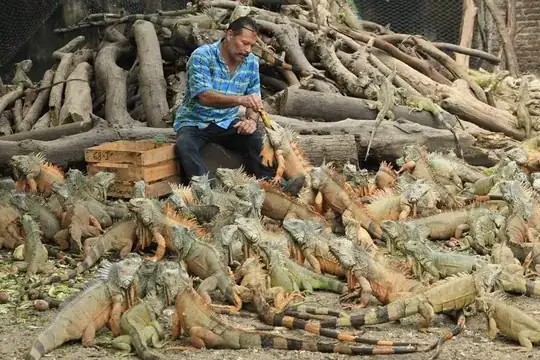Disclaimer: The scenario here is modelled after the M. R. Carey's book The Girl With All The Gifts and its sequel The Boy On The Bridge, so it will contain some spoilers.
Scenario: Most of human population and civilisation ended in the Zombie Apocalypse, which was caused by a parasitic fungus of the Cordyceps family. This pandemic happened in a matter of days to weeks, and was spread by means of saliva and blood through the infected and rapidly 'zombiefied' people. Initially, several thousand people, (in Great Britain) escaped being infected, but about a decade later, the fungal spores became airborne, so that there are only about one hundred survivors left (living in alpine conditions). Meanwhile, the children of female zombies who got infected in pregnancy develop a symbiotic relationship with the fungus, which modifies their physiology in the following ways:
- They develop rapidly after birth (within semi-realistic biological parameters) and are able to survive without parental care
- They require a protein-rich diet
- They have reflexes, sensory capacity (smell and vision), strength and endurance that is far above the human average
- They have higher environmental tolerance than regular humans, e.g. they don't suffer from the cold in alpine conditions
- Their cognitive abilities are within the normal range
- Sensory proximity to warm-blooded animals involuntarily triggers them to temporarily enter a 'zombie' state, in which their reflexes of hunting and feeding suppress their cognitive control
- They age at about a normal rate, and end their lives at an unknown age (at earliest in their 30s) as a substrate to the fungus' fruit body
These majority of these 'symbionts' grew up feral (in the absence of parental care), but organised themselves in 'packs' and later received some education from the 'survivors' (This is much of what the novel is about). About two decades after the apocalypse, the 'symbionts' form a society that is bening (and supporting) towards the 'survivors' and affine towards pre-apocalypse civilisation. The 'survivors' can provide school-level education and specialized domain knowledge (mainly life science and military), but there is little chance there are farmers, toolmakers, builders etc among them.
The actual question: Would the 'symbionts' take up animal husbandry, or sustain themselves with hunting?
I think this question is interesting because it determines the direction of where this civilisation is developing. Hunting provides more immediate gratification, but inhibits specialisation and would send the society into a direction of a primitive society that simply depletes the resources from pre-apocalypse civilisation. Animal husbandry requires more foresight and work, and at low population densities is not necessary, but would allow for specialisation and provide a basis for an Amish level of civilisation.
Here is some speculation on my part, but I might be wrong:
Initially their population density (there would be 'tribes' of some dozens in each major city) would allow for getting by with hunting, but as their numbers increase, the need to exercise extensive animal husbandry, focussing on providing pasture and eliminating predators, would increase. Furthermore, the 'survivor' enclaves would probably encourage and enable the 'symbionts' to do animal husbandry.
I hope the scope of this question is narrow enough for this site. I'm open to make further edits as needed.
